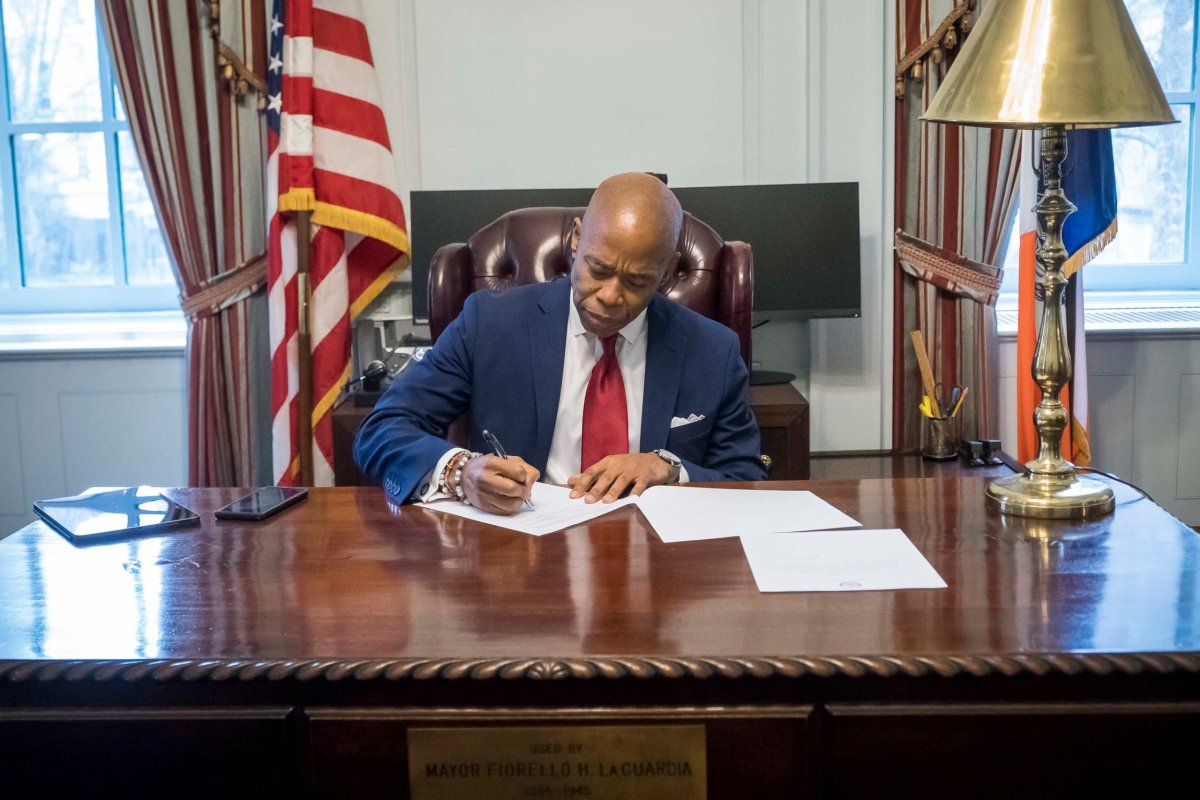When Mayor Adams took office in 2022, he promised to prioritize transparency and increase access to government services for all New Yorkers.
Transparency and accountability are important because every community deserves to know how city government is working to meet their needs. This must be a standard expected of every agency—especially those that interact daily with New Yorkers.
The City Council advanced a key transparency measure when it passed Introduction 586-A to require the police department to report on police-civilian investigative encounters, with a veto-proof majority. Rather than working to implement the legislation, however, Mayor Adams chose to veto it, denying the will of New Yorkers, and sending a clear message to communities of color that their experiences with law enforcement did not warrant this transparency reform.
In his recent State of the City address, Mayor Adams spoke about his administration’s early priorities to keep New Yorkers safe. But how exactly can Black and Latino New Yorkers feel safe when the very entity charged with that responsibility inequitably decides who should be subject to stops and inquiries?
We know the impact of “low-level” investigative stops on the youth in our communities in Southeast Queens and Far Rockaway, and how it can humiliate and harm those subjected to them. When 97% of those being stopped are Black and Latino, it’s clear that the system is rigged against people who look like us and we are subject to a different set of rules.
In his State of the City, the mayor also mentioned the need to preserve public trust through more expeditious investigations when police officers are accused of misconduct. While we applaud this stated goal, we strongly believe accountability must be the priority. The way to achieve that is with transparency, which might decrease the number of these investigations if officers are required to document who they are stopping and why.
Let’s be clear: these numerous and often unnecessary encounters are not merely minor disruptions to people’s daily lives. These interactions are the basis for the continued feelings of distrust that communities of color hold towards law enforcement. The intent behind community-focused NYPD events like basketball tournaments, camping events and holiday giveaways are immediately forgotten and deemed shallow, as soon as a community member is unjustly stopped, harassed or worse, for seemingly no reason.
When Introduction 586-A landed on his desk awaiting signature, Mayor Adams had a great opportunity to change the way the public interacts with the NYPD and how people view law enforcement by signing this common-sense legislation into law. Instead, the Mayor chose to deny us the transparency we deserve and sent a message to our Black and Latino residents in areas like Southeast Queens that we are not worthy of police accountability, transparency or respect. Communities like ours that are most impacted by police stops contributed to creating the How Many Stops Act, and the bill was negotiated in conjunction with NYPD leadership.
For the Mayor to subsequently veto the bill, after so much work went into ensuring that it be a fair and impactful piece of legislation, is not only confusing, but casts doubt on the mayor’s intentions.
Southeast Queens is largely composed of public servants. More than anyone, we understand the sacrifices required to keep this city running. We also understand that more transparency ultimately protects officers and the public alike. The Council’s legislation merely intends to establish a uniform reporting requirement for all levels of police-civilian investigative encounters, closing the loop on missing data and underreporting. The reporting process should be quick and seamless, and in line with current processes to document other police stops and catalogue body camera footage of the stops covered under the How Many Stops Act.
We are not anti-police; we are pro-safety, pro-transparency and pro-equality. Mayor Adams needs to be a mayor for all New Yorkers, not just NYPD officers. He should prioritize safety over secrecy, and transparency over tradition.
The pursuit of justice should never be undertaken at the expense of innocent people. We oppose the mayor’s veto to Introduction 586-A and support the City Council’s vote to override it.


*Candace Prince-Modeste is President of the NAACP Jamaica Branch. Audrey Robertson is President of the NAACP Far Rockaway Branch.




































